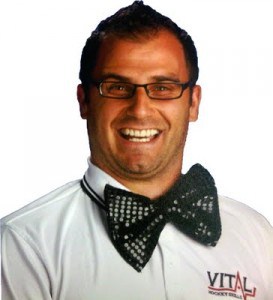07 Feb Coaching Hockey
Coaching hockey isn’t easy!
Getting a minor hockey team to buy into a “Passing Team Concept” based on puck movement can be nearly impossible! It’s especially hard when a team is in the upper tier and made up of the better players in the league. Every parent wants to see their kid dangle, snipe and celly, no doubt. Next to crack, I’m not sure what other feeling is more addictive than watching little junior go end to end and bury it. But long term, this is far from what the game is actually all about. So how do we balance out coaching hockey to develop creativity, managing over zealous parental expectations and actually teaching children how to share the puck…
4 Tips to Develop a Passing Team Concept When Coaching Hockey
1) Coaching hockey to get parents on side
A lot of new coaches think that coaching hockey is all about teaching the game and relating to youth, but the truth is, it’s more about managing parental expectations; the root of which lies in communication. The hardest of all your obstacles as a coach will be getting parents to understand the true nature of the game as a team sport. Nothing showed this more than Sammy Gagner’s 8 point night! Although the feat would stand as an individual accomplishment, EVERY player on that Oiler’s team banded together to help him attain it! The success of the individual is based on the effort of the whole. Unfortunately, just highlighting examples like this won’t do it for some of those wiley parents out there. There needs to be a real effort to communicate with parents that is frequent, open and specific (to the point). Coaches can try:
- Weekly “Coaches Corner” type emails, outlining where the team is at and where the coaching staff would like them to be in the next little while.
- Monthly “Town Hall” open forums where parents can openly ask questions, make comments or address concerns.
- “Parent Practices”- Every few practices parents can volunteer to come on the ice and run a few drills of their choice (Coach approved of course)
A lot of coaches shy away from the parents, refusing to socialize or talk to them. This style of coaching hockey open’s up an ego driven, “I know more than you” battle that is impossible to win… remember it’s 16×2= 32(parents) to 1 (coach) in most cases!
2) Working on the basics
Let’s face it, most coaches coach how they were last coached. We’ve all seen it, the young bucking bronco coach fresh out of a Junior or Semi-Pro career, on a crusade to make sure no careers will ever be cut as short as like his . You know the one that dazzles crowds with the 3 on 2 re-group drills with 7 year olds! Unfortunately, they need to realize, it’s not about “look what I can get kids to do”, it’s a sport that requires kids to aquire certain skill sets at the various levels along the way! Most of the time, coaching hockey at young ages, is about repetition and simplicity! 2 principles hold true in this regard:
- There is no need to re-invent the wheel
- It takes 10,000 hours to master a skill… repetition is their greatest teacher
A.K.A. Keep it simple stupid
3) Nothing moves faster than the puck
It only takes a few races against a puck in practice to realize this. Add a few video examples of how one pass can beat 3 players, and how the quicker you move the puck, the quicker you get it back and it won’t be long before the players and parents start to enjoy a whole different type of hockey.
4) Understanding the one-touch- All young players have played hot potato in kindergarten, so it’s not hard for them to understand the move it as quick as you get it mentality. Not only will it teach them to have their heads up scanning the ice for potential targets, but it will teach the players that want the puck to keep their feet moving and skate into openings.
Coaching hockey with an emphasis on puck movement is a true testament to a coaches effort to continually communicate with parents and teach the game properly. If you are or have a coach that does this already, let them know their efforts are appreciates, if not, don’t be afraid to make suggestions.
Until next time…





Sorry, the comment form is closed at this time.